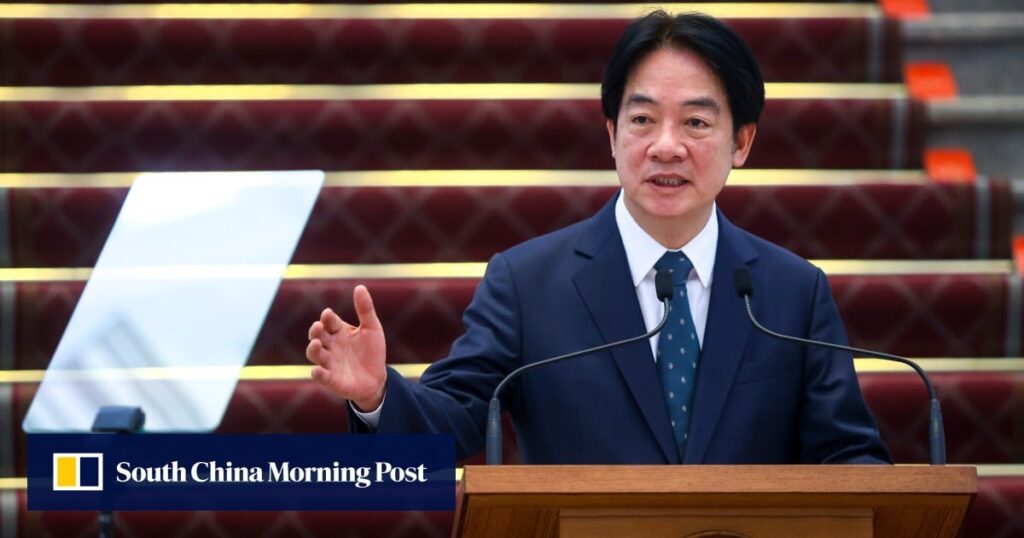Taiwan Legislative Overhaul Spurs Controversy: Opposition Accuses Government of Double Standards
In a move reminiscent of the extensive oversight exercised by the US Congress, new legislation in Taiwan has granted lawmakers significant powers to scrutinize the executive branch. These measures empower deputies to request information and documentation from government agencies, the military, and other entities, stirring a significant political debate.
Crucially, the legislation mandates that the president deliver an annual address on the state of the island, followed by a question and answer session with lawmakers—a provision that Vice President William Lai has deemed unconstitutional. On Tuesday, Ko Wen-je, leader of the Taiwan People’s Party, and the main opposition party Kuomintang (KMT), united in support of the bills, citing Lai’s electoral promise to engage with the legislature in such a manner.
“This was recorded on video and is publicly available. Do pre-election promises not count? Were they made purely based on his own mood? There is absolutely no credibility—just lies,” Ko asserted, further accusing Lai of undermining the constitution.
Drawing historical parallels, Ko stated, “Throughout history, no country has perished due to natural disasters or plagues alone; it is often due to the actions of a mad leader, with Hitler being a prime example.” This charged rhetoric underscores the deep-seated tensions within Taiwan’s political landscape.
Responding on Monday, Lai contended that the legislation signifies an “expansion of legislative power, not legislative reform,” alleging that it infringes upon judicial authority, the Control Yuan—Taiwan’s oversight body—and citizens’ basic rights. He argued that the new requirements effectively morph the leader’s address into a compulsory act, undermining the accountability structure between the Executive Yuan and the Legislative Yuan.
“This disrupts the institution of the Executive Yuan being responsible to the Legislative Yuan, leading to concerns about an overreaching expansion of the power originally bestowed on legislators by the constitution,” Lai articulated. Pledging to challenge the legislation’s constitutionality, he vowed to seek a preliminary injunction from the constitutional court to halt its implementation.
The Taiwan People’s Party and KMT maintain that such reforms are consistent with prior positions held predominantly by the Democratic Progressive Party (DPP), to which Lai belongs. KMT chairman Eric Chu Li-luan highlighted this perceived duplicity, pointing out that Lai and other DPP officials, including former President Tsai Ing-wen, had previously endorsed granting the legislature extensive powers for oversight and transparency.
“The DPP now opposes the reforms because they fear the exposure of irregularities and are afraid of allowing justice and transparency to enter the legislature,” asserted Chu.
As Taiwan grapples with pressing issues like power shortages and soaring housing prices, the recent legislative changes have prompted mass protests. Both government supporters and opponents have taken to the streets, raising the specter of potential recall initiatives against their adversaries.
In the midst of this political maelstrom, Taiwan finds itself at a crossroads, striving to balance the scales between legislative oversight and executive independence, echoing broader democratic struggles observed globally.
For more details, visit our source at SCMP.
